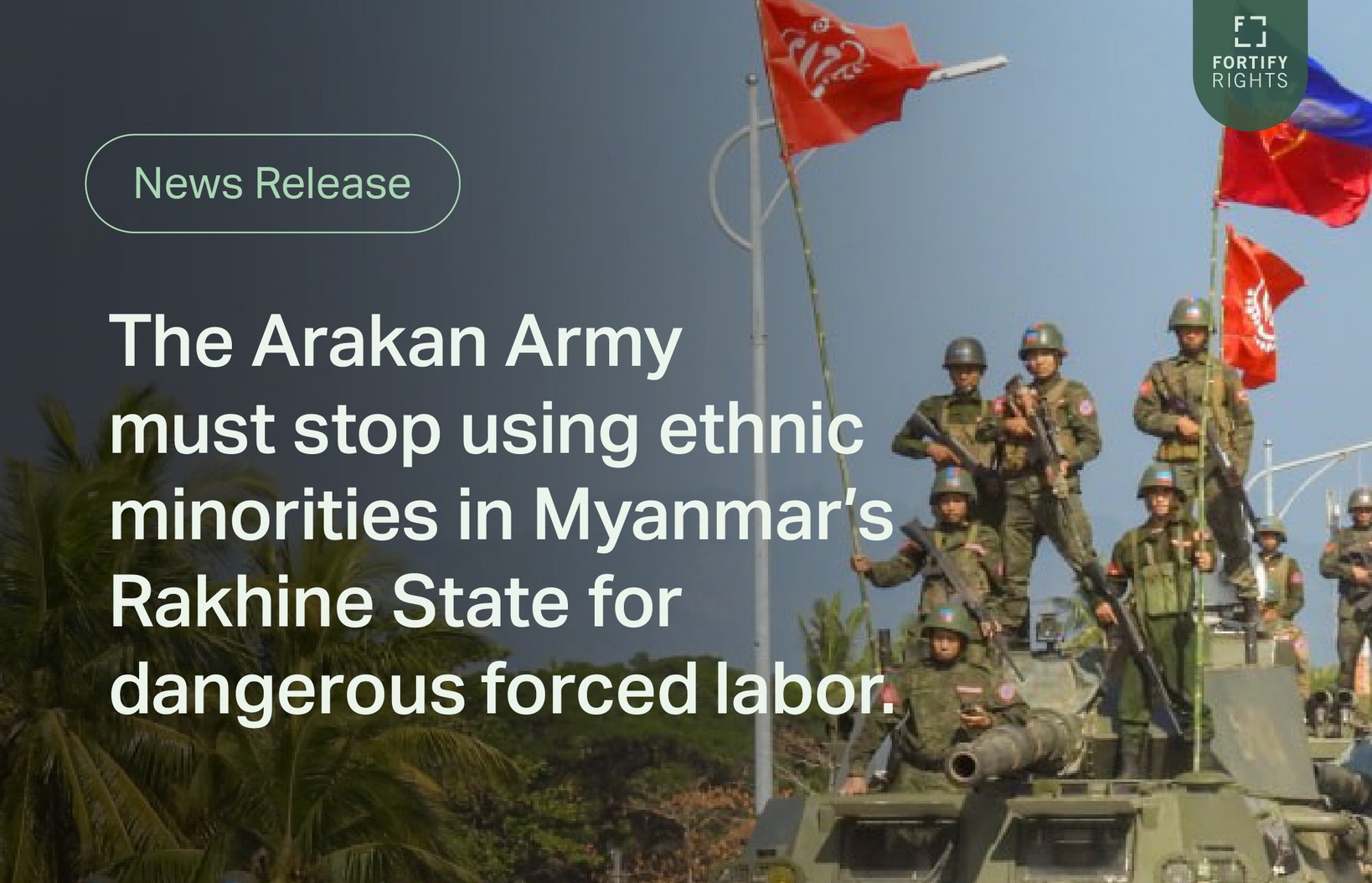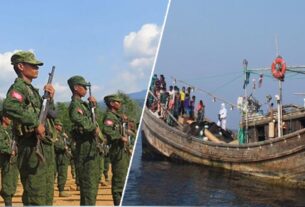
![May be an image of text that says "r 66 Py- FORTIFY RIGHTS Ihave been called to work [for] four to five months sincel started... with the requirement to serve once a week... They told us we would be thrown into pits if we refused." -A30-vear-oldlHinduboat.peratr 30-year-old Hindu boat operator @.3 Coreron @mavigen,CCOr-SA .. لـ 2/5"](https://scontent.fcgp28-1.fna.fbcdn.net/v/t39.30808-6/580057750_869577362072449_6969689582244412998_n.jpg?_nc_cat=104&ccb=1-7&_nc_sid=127cfc&_nc_eui2=AeFd_ue0petOqwIuHyAXSUuCx-0P2BNud7vH7Q_YE253u3VpjDRqsV_rIUzq7Af0hlgHwtZhueNILf8GMpNhiLBr&_nc_ohc=VjP-d8RR9OUQ7kNvwFcOlC0&_nc_oc=Adm_m3kr1RMP_Nu7zMwUdqkoDx53DvBMfGT9ruybKryNWDorIL3r6GtDBDasVLqfWBY&_nc_zt=23&_nc_ht=scontent.fcgp28-1.fna&_nc_gid=5lGAWGx52SdSgFcYJs0lRw&oh=00_AfhZZZCFrLOKDrkYHkspRT81zUcXYtbyL259b8ADuMecVw&oe=6918C584)
![May be an image of text that says "r 5 ٦ FORTIFY FORTIFY d RGHTS "I was forced to do sentry duties in March or April this year [2025].. but I didn't want to leave my wife alone at night... I was arrested and taken by the Arakan Army to build a road. for ten days... They beat me and tortured Te, accusing me of failing [to conduct my sentry] duties." -A26-year-old/Rohingyaman A26-year-old Rohingya Taл from fromMaungdawTow Maungdaw Township 4O2025 2025 ل 3/5"](https://scontent.fcgp28-1.fna.fbcdn.net/v/t39.30808-6/580031593_869577355405783_7040362048777061074_n.jpg?_nc_cat=111&ccb=1-7&_nc_sid=127cfc&_nc_eui2=AeFCeOdMUUk_jcHt6OMP07xWhbQMwsXoyKeFtAzCxejIp_FeD_Fpsxf2zgb1VQm6bsdVEToqdkRoiPcuA-u83VI2&_nc_ohc=XbhNI9OZIDEQ7kNvwF2Jwfb&_nc_oc=AdmzfE1RG0dFMXHyhhm3etqWsTlOtPtgGTUfhaf4nPFG_bTSYQ8lRSgblF-J0sJGc4s&_nc_zt=23&_nc_ht=scontent.fcgp28-1.fna&_nc_gid=PvmS3diG321ed1b5BXNSxw&oh=00_Afj3jfKyhotd1MJ35t_nuw9jxUF-oWUD08pD7oBkKXejGA&oe=6918C293)


Key Findings
-
The AA is using forced labour of ethnic minorities — including Rohingya Muslims, Hindus, Chakma and others — in dangerous wartime conditions in Rakhine State.
-
Survivors described being threatened at gunpoint, detained arbitrarily, and forced for months to:
-
carry ammunition and supplies (“portering”)
-
build and repair fortifications, trenches, bunkers, battalion compounds
-
perform hard labour such as clearing vegetation, maintaining roads, farming and tending livestock, etc.
-
-
These activities occurred in villages under AA control, where one male from each household was typically requisitioned for labour for anywhere from a day up to several months.
-
The victims were not paid for their work. The customary laws of war require fair compensation when civilians are used by armed groups; the AA’s practices thus may constitute violations of international law and possibly war crimes.
-
Some detainees were held in makeshift detention centres, in bamboo enclosures, or built by other forced labourers; they were abused, beaten, tortured, and made to work under harsh conditions, often with little food, rest or medical care.
-
In addition to forced labour, the AA is also accused of forcible recruitment of minorities: young men were conscripted, given training, and forced into service (portering, front-line support, carrying rations, digging trenches) under threat of punishment.
Context & Significance
-
The report was based on interviews with 21 survivors and witnesses between November 2024 and October 2025.
-
Rakhine State is ethnically diverse — majority Rakhine Buddhists, and minorities including Rohingya, Hindu, Chakma, Kaman, Mro, Thet etc. The AA’s forced labour practices disproportionately target minorities.
-
The AA gained significant territorial control in 2024, which the report suggests enabled institutionalised forced labour systems in villages under its control.
-
Under international humanitarian law, civilians coerced into labour or combat support by an armed group are protected persons, not voluntary participants — meaning forced labour and forced recruitment are illegal. The report warns the AA’s actions “may constitute war crimes under international law.”
Implications
-
The forced labour system undermines the rights of ethnic minorities and contributes to broader patterns of abuse and discrimination in Rakhine.
-
The lack of payment, harsh conditions, threats of violence, and detention highlight egregious violations of human rights and humanitarian law.
-
The international community and stakeholders in Myanmar’s peace process should consider accountability measures and protections for victims of forced labour.
-
These abuses hamper efforts at inclusive governance and peaceful coexistence in Rakhine State by deepening grievances among ethnic minorities.




